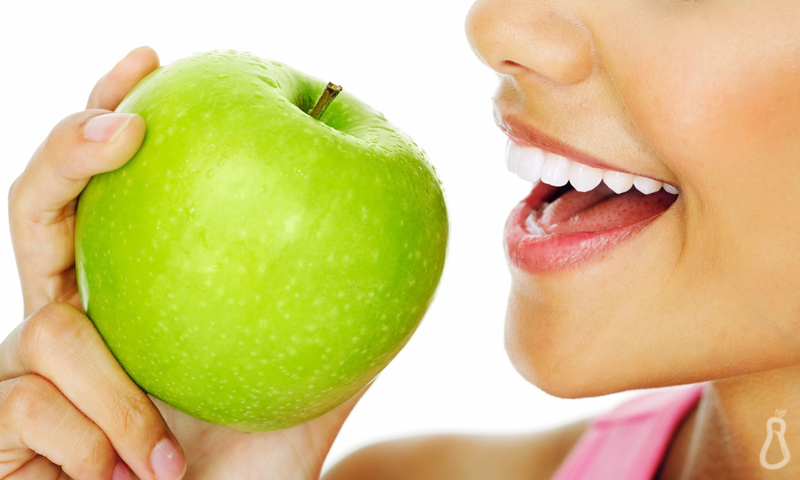When I was in high school, one of my best friends swore that she was allergic to bananas. I had never known anyone to be allergic to bananas, so I asked her what happened when she ate them, and she said, “They make my mouth itch like crazy!” I didn’t really believe her at first because I had never experienced an itchy mouth from any foods, but slowly I met more and more people with the same problem.
As we discussed in last week’s article, this very well could be an allergy if the reactions are serious and life-threatening, but an itchy mouth can also be a symptom of another adverse food reaction.
What makes my mouth itch?
If certain foods make your mouth itch without going into anaphylactic shock, then you might have an issue with histamine. For those of you who don’t know, histamine is a neurotransmitter, responsible for stimulating stomach acid secretion and triggering an immediate inflammatory response via the immune system. Many of us are familiar with histamine as it relates to seasonal allergies – sneezing, runny nose, headaches, and itchy eyes.
Almost everyone knows that antihistamines can take you from miserable to Joe Kinder in about 15 minutes. But, what many people don’t know is that there are histamines, histadines (a close relative), and histamine-producing nutrients in some of the foods we eat. Normally this isn’t really a problem because we can break down dietary histamines in the digestive tract, but as with anything in life, things don’t always work out according to plan.
What is Histamine Intolerance?
Histamine intolerance occurs when there is a build-up of dietary histamines in the body. This can happen either from consuming too much dietary histamine or not producing enough diamine oxidase (DAO), the enzyme responsible for breaking down dietary histamines. According to the American Society for Clinical Nutrition, the symptoms of Histamine Intolerance include:
- Itchy skin or mouth
- Difficulty falling asleep
- Unexplained headaches or migraines
- Dizziness
- Diarrhea
- Abdominal cramping
- Nasal congestion
- Asthma
Which foods contain or produce histamine?
There are some foods that contain or produce more histamine than others. Typically, the histamine content in food increases over time, so that is why many foods on this list are aged or fermented in some way. That is also why your tongue may itch when you eat really ripe avocados or bananas, but you may have no reaction if you eat them before they’re ripe.
- Cured meat
- Bacon
- Salami
- Pepperoni
- Deli meat
- Fish
- Mahi-mahi
- Mackerel
- Tuna
- Anchovies
- Sardines
- Aged cheeses
- Fermented alcohol
- Wine
- Champagne
- Beer
- Fermented foods
- Sauerkraut
- Pickles
- Soy sauce
- Kefir
- Yogurt
- Kombucha
- Dried fruit
- Apricots
- Prunes
- Dates
- Figs
- Raisins
- Fruit
- Oranges
- Bananas
- Pineapple
- Papaya
- Strawberries
- Vegetables
- Avocados
- Eggplant
- Spinach
- Tomatoes
- Nuts
- Walnuts
- Cashews
- Peanuts
- Cow’s milk
- Chocolate
- Wheat germ
Which foods are low in histamine?
- Fresh fruits
- Apple
- Watermelon
- Grape
- Cantaloupe
- Kiwi
- Mango
- Pear
- Fresh vegetables (except tomatoes, spinach, avocado, and eggplant)
- Fresh meat and fish
- Dairy substitutes
- Gluten-free grains
- Cooking oils
How do I know if I have a histamine intolerance?
There are lab tests out there that can test for histamine and DAO levels, but Dr. Janice Joneja believes that these tests aren’t actually very helpful. She believes that the best way to determine a histamine intolerance is to begin restricting your intake of histamine-rich foods. If you truly have an intolerance, then you should find relief from your symptoms. The duration of time is different for every person, but if you haven’t found any relief, then you could have mast cell disorder, in which case, you should seek medical care from your primary care physician.
Conclusion
If you suspect that you may have a histamine intolerance, start by experimenting with certain foods. Try removing them from your diet for a few weeks to see how you feel. You can also address your histamine intolerance with these tips:
- Replace high-histamine foods with low-histamine foods of equal nutritional value
- Cut back on alcohol, energy drinks, and green teas (beverages that can deplete DAO levels)
- Try to reduce your stress levels (stress depletes DAO levels)
- Talk to your doctor about taking a DAO supplement
- Consume pea seedlings as a natural DAO supplement if you can find them


Hi Aicacia!
I was wondering if you could write an article on exercises to improve climbing at home, just using body weight, instead of weights. I was thinking the other day how to keep important aspects of climbing (finger strength, core strength, etc.) up without having to go to the climbing gym so often. I thought of you and thought you’d be the right person to ask. Thanks- I’ve been enjoying all the articles!
Hi Joel! Absolutely! Thanks for the suggestion 🙂